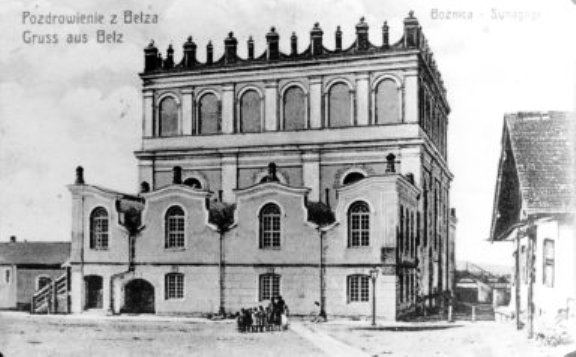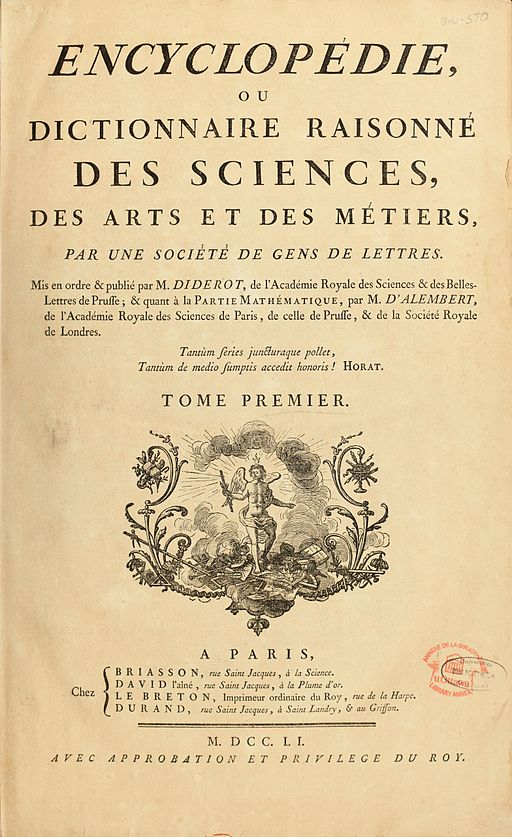
1730 AD to 1750 AD, Psalm 133: The Enlightenment.
This site was first built in French (see www.147thgeneration.net). The English translation was mainly done using « google translation ». We have tried to correct the result of this translation to avoid interpretation errors. However, it is likely that there are unsatisfactory translations, do not hesitate to communicate them to us for correction.
(for that click on this paragraph)
Summary
This generation of the 1730s and 1740s.
According to our count, this generation is the 133rd generation associated with Psalm 133. It is in this Psalm 133 that we therefore find an illustration of the facts of this generation.
In France, this generation is marked by the reign of Louis XV, king well loved at the beginning of the generation, the tide turns at the end of it.
Born in England, the Enlightenment movement reached the European continent in this generation.
Among those who promote the movement in Europe, voices are heard to bring a new, more positive outlook on the Jews, initiating a slow movement of integration. This announced end of religious antisemitism will unfortunately pave the way for other forms of antisemitism in the future.
At the same time, in eastern Europe, a new Jewish movement is emerging: Hasidism.
Talk
King Louis XV of France
In Europe, this generation of the 1730s and 1740s is mainly marked by the War of Succession of Austria.
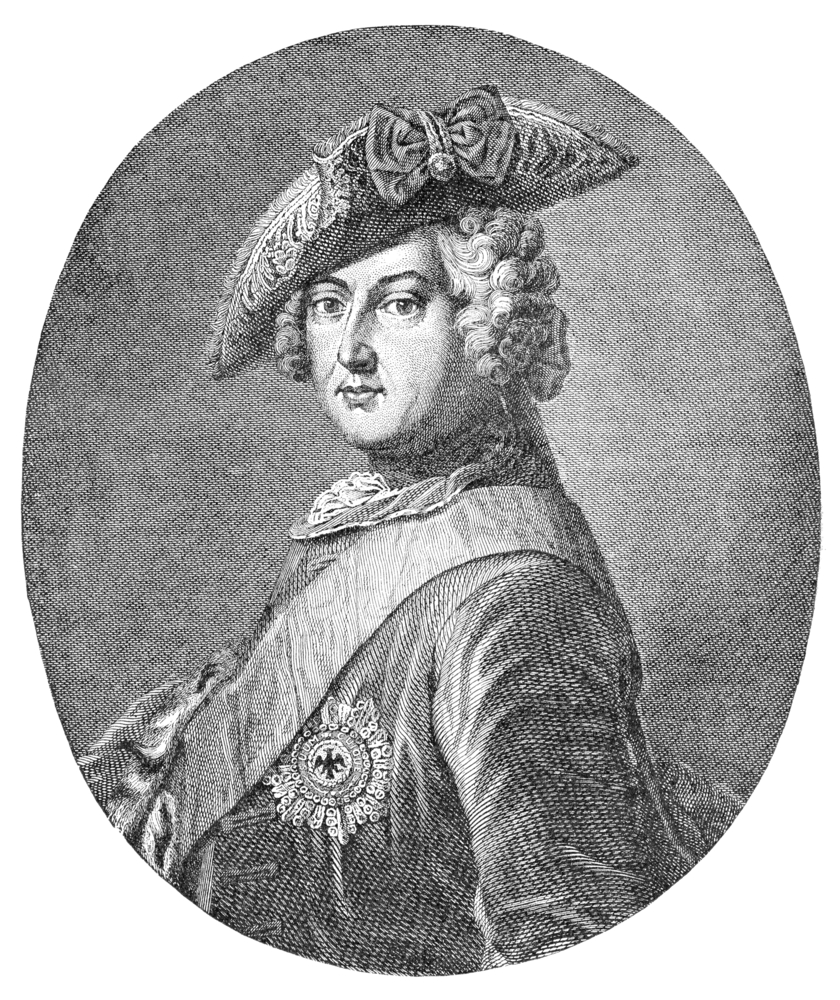
Frederick II of Prussia seizes Silesia. The Elector of Bavaria claims the imperial crown, he is supported by France with Spain for ally while England and the United Provinces support Austria. England and France are also competing at sea, whether in Europe or in the new world. Peace comes at the end of this generation but with consequences for the economy of the protagonists.

The long reign [1] of Louis XV (1715-1774) began on a period of relative peace that allowed a population expansion (about 24 million French in 1725) accompanied by economic growth and the first effects of the Enlightenment in the Science: medical progress reducing mortality, improving agricultural yields, improving communication routes in the kingdom, beginning of the development of artisanal and industrial production. Thus the king of France Louis XV, nicknamed the beloved is a popular king at the beginning of his reign. His personal involvement in the conflict of the Austrian succession even reached the peak of this popularity in 1744-1746. But from 1747-1748, poor harvests associated with the misperception of the Treaty of Aix La Chapelle that ended the war of succession in 1748 caused a reversal of this popularity. In fact, only the Kingdom of Prussia can be considered as beneficiary of this treaty. The War of Austrian Succession also has repercussions on the English economy.
The Enlightenment movement
This generation is a pivotal generation for Judaism, mainly European Judaism, which is still recovering from Sabbataism and has been shaken by the openness to the world and the science initiated by Spinoza and which will be confirmed by the Haskalah actors. from the next generation.
The Enlightenment Age mainly initialized in England reaches the continent at this generation:
- The Enlightenment [2] and enlightened Europe appear in their diversity (across Europe). Unequal economic development, variety of social structures introduce chronological shifts and ideological variations. Early Enlightenment here, and there later, as Western Europe moves towards the east or the south, leading here to a liberal political practice, sometimes to the utopian egalitarian or communist, there on the practice authoritarianism of enlightened absolutism. Atheists, deists and believers are neighbors: there was a Catholic Aufklärung. The Enlightenment did not freeze in dogma or creed. They affirmed a certain number of ideals that were flexible enough to respond to different families of mind, to various national requirements. Enlightenment, Lumières, Aufklärung, ilustraciòn, illuminismo: so many geographically and chronologically irreducible national realities, each having its own vision, its particular collaboration. « French Europe in the Age of Enlightenment », it has often been said: it is impoverishing the richness of the time, underestimating its complexity, reducing Europe to its princely courts and its social elites. No doubt France served as a relay between England and the continent, the French Enlightenment shone on Europe’s brightest.
New outlook at the Jews
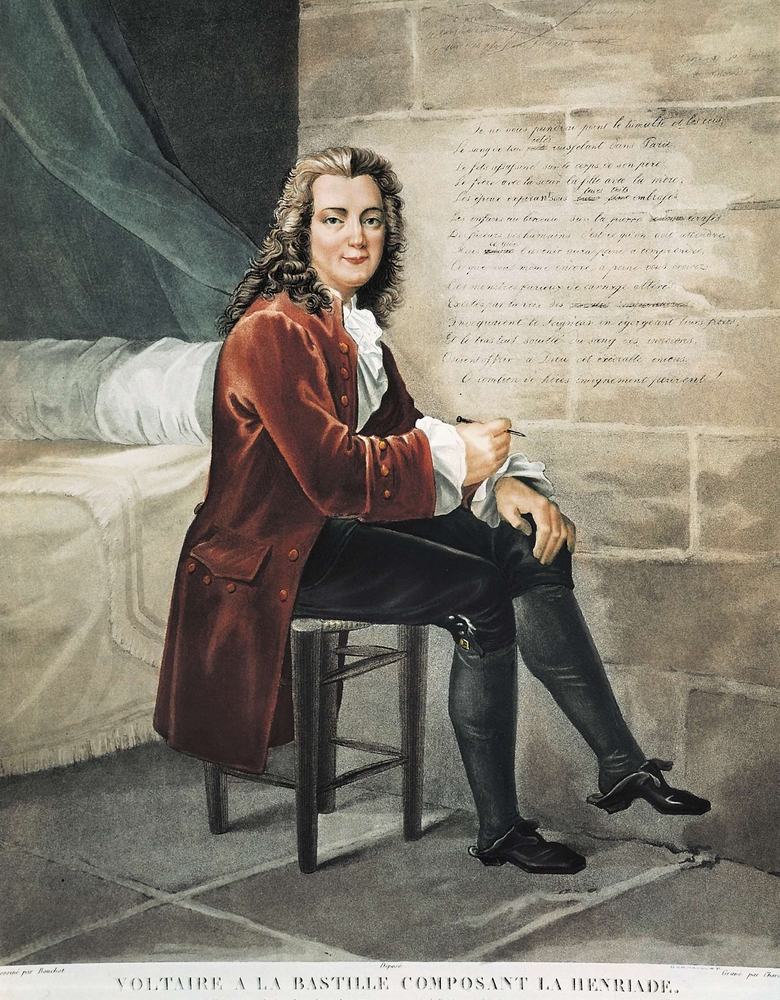
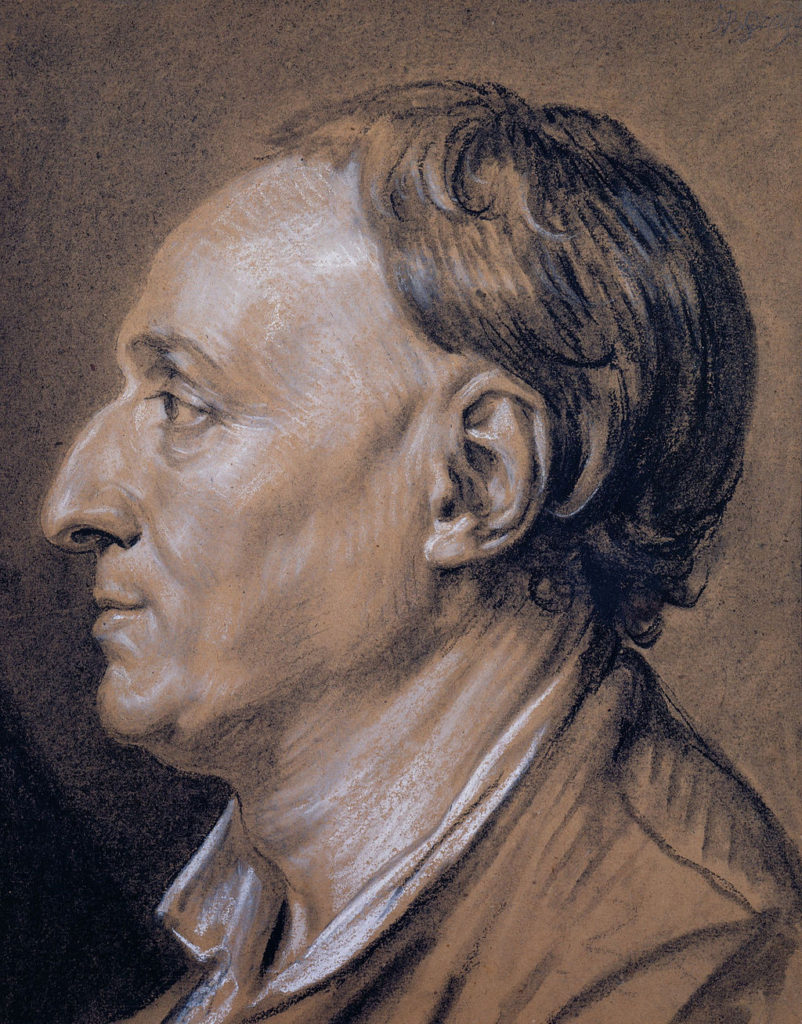

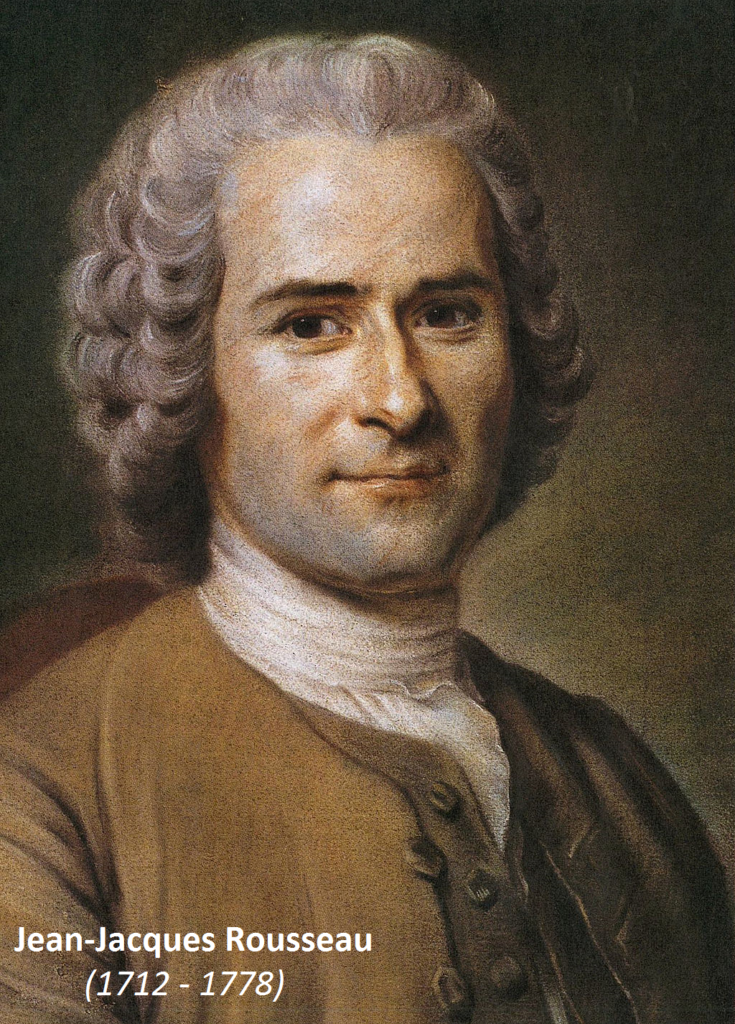
At the end of the century, the attraction will turn into defense reflex. The most « luminous » representatives of the Enlightenment in France are Voltaire, Diderot, d’Alembert, Rousseau and Montesquieu. Voltaire is still influenced by Leibniz’s theory of « the best new world », the Lisbon earthquake will only take place in the next generation.
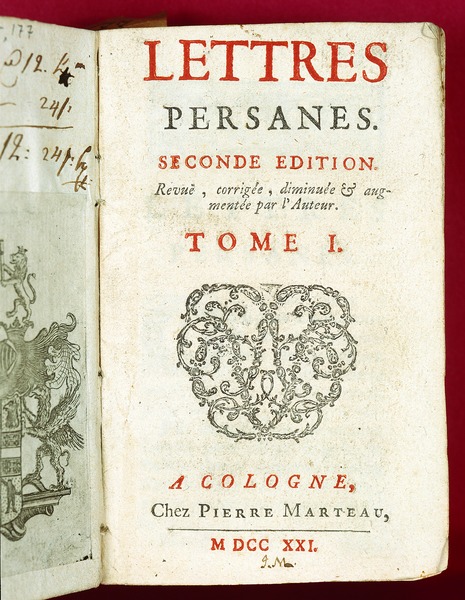
At the present generation, the Enlightenment’s reflection is rather favorable to a real cohabitation, a precursor to the integration of Jews in nineteenth-century Europe. As Montesquieu puts it in « Les Lettres Persanes (Persian Letters) » (published anonymously in 1721 in Amsterdam):
- You ask me [3] if there are Jews in France? Know that wherever there is money, there are Jews. You ask me what they do? Precisely what they do in Persia; nothing is more like an Asian Jew than a European Jew. They make appear among the Christians, as among us, an invincible obstinacy for their religion, which goes to madness.
- The Jewish religion is an old trunk that has produced two branches that have covered the whole earth, I mean Mahometanism and Christianity; or rather, it is a mother who has begotten two daughters who have overwhelmed her with a thousand wounds; because in fact of religion, the nearest ones are the greatest enemies. But, having received some ill-treatment, she does not fail to boast of having given them birth; she uses both to embrace the whole world, while on the other hand her venerable old age embraces all time.
- The Jews, therefore, regard themselves as the source of all holiness and the origin of all religion; on the contrary, they regard us as heretics who changed the law, or rather as rebellious Jews.
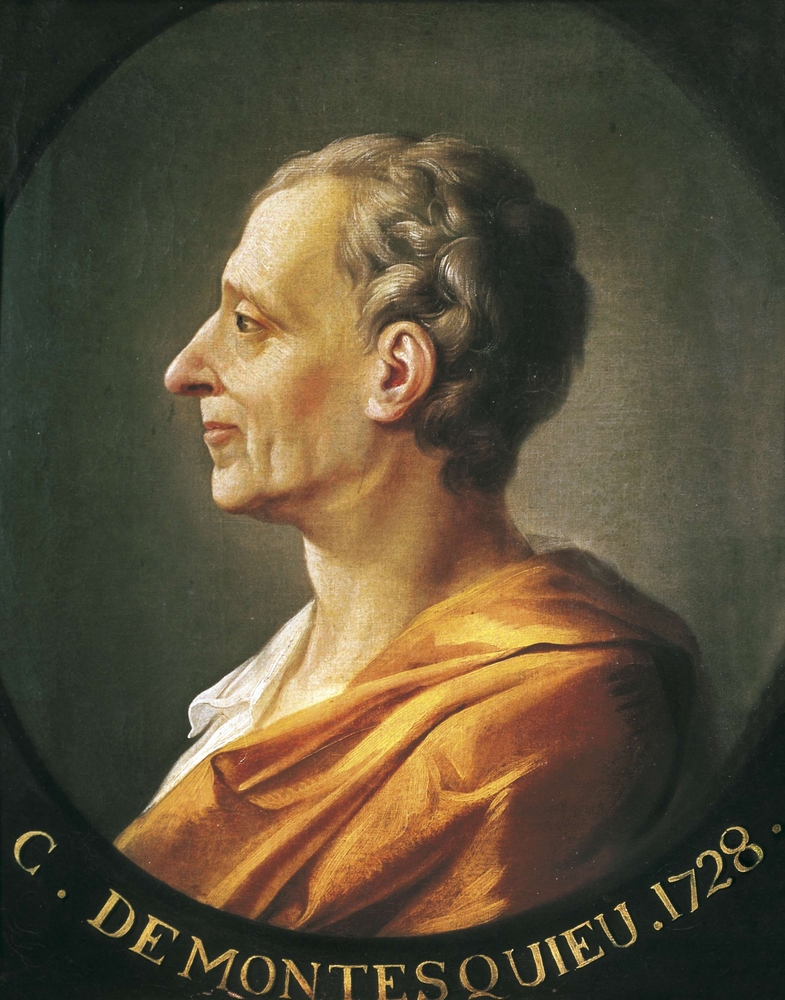
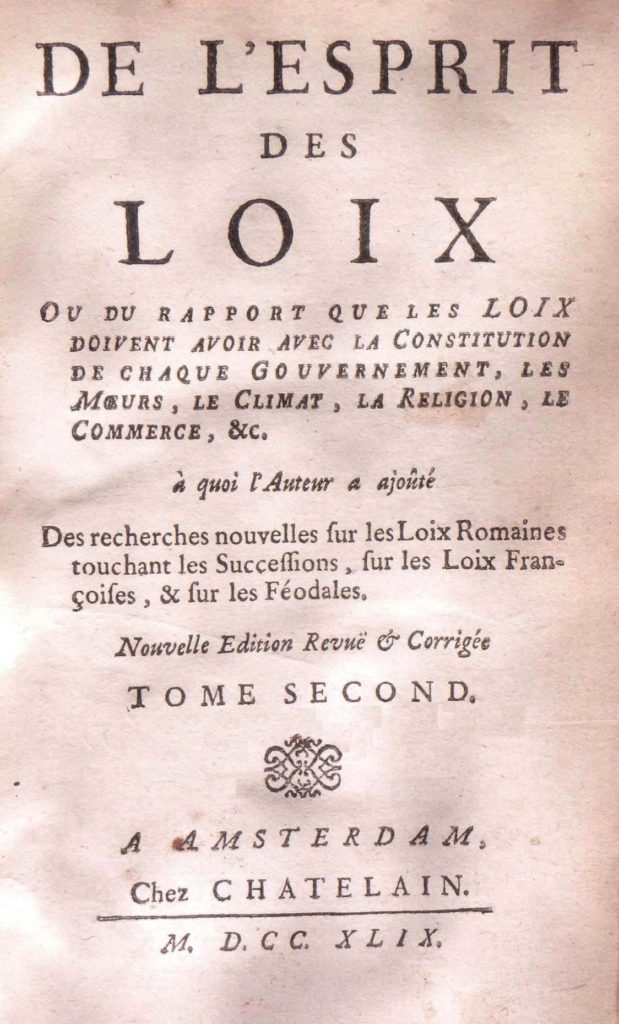
Later, in « L’Esprit des Lois (« the spirit of the laws ») » (1748), Montesquieu is more explicit when he tells a Jewish victim of the Inquisitors:
- You make [4] us die, we who believe only what you believe, because we do not believe everything you believe. We follow a religion which you yourself know to have been formerly dear to God; we think that God still loves him, and you think he does not love him anymore; and because you judge so, you make those who are in this forgivable error believe that God still loves what he loved, by fire and fire.
The utopia of a better world, a more fraternal and just humanity that feeds this generation and is a forerunner of the French Revolution, the emancipation of the nineteenth century, but which will not prevent the return to the old demons in the twentieth century, is evoked by the psalmist in the psalm of this generation:

- A song of ascents of David. Behold how good and how pleasant it is for brothers also to dwell together!
The length of the psalm of this generation is exceptionally short in the image of the narrow hope that rests on the current of the thinkers of this generation.
Some, moreover like Voltaire, will come back to the charge against the Jewish people, not being able to prolong a religious antisemitism, he will innovate in an intellectual and atheistic antisemitism.
In fact, the Enlightenment owes its name to the fact that the philosopher must enlighten the world.
Hasidism
What Solomon already recognized. To the accumulation of wealth, Solomon’s wisdom consists in knowing how to seek or rather to identify simple pleasures.
So while the Enlightenment Philosophers determine how to live happiness together in a world where God no longer has a central place, in Eastern Europe, many Jews associate a simple happiness, always associated with the divine presence but enjoying every happy moment in perfect coexistence between men:
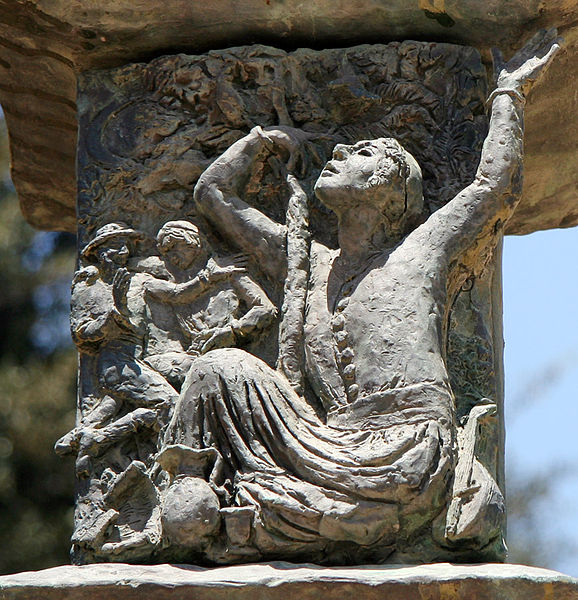
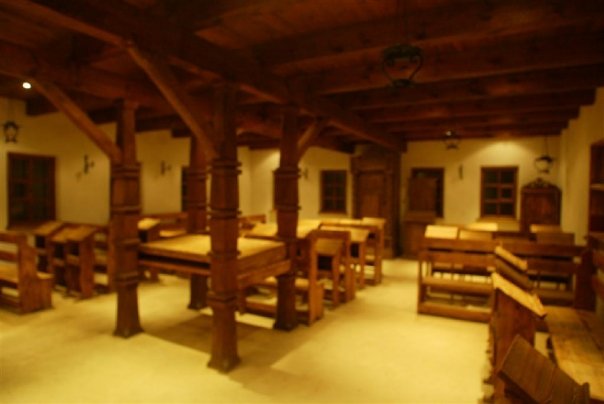
- Two [5] currents of renewal crossed Judaism in the 18th century.
- While Talmudic Jewish orthodoxy still aroused great theologians, such as in Prague Ezekiel Landau (1713-1773), Hasidism appeared in Podolia (Today in Ukraine, at that time in Poland) around 1720 and won quickly the Jewish communities of Poland and Russia.
- Speaking more to sensibility than to intelligence, opposing simple piety (hassid: pious man) and charity to erudition and bookish knowledge, exalting the fervor of feelings and actions, Hasidism corresponds to need time. The persecutions that in the previous century had plunged Jewish communities into misery, the suffering endured had already made the minds receptive to the messianic movement of Shabbetai Zevi (1620-1716). He had led the crowds into a false hope of redemption and in the hope of a quick deliverance from their tribulations.
- The ruin of this movement further aggravated the spiritual and moral collapse. But while the scholars rested from their discouragement, in the study of the Torah, the simple found in the Hassidism preached by Israel Baal Shemtob Besht (1700-1760) a way out of their despair. It is in the present, in the context of daily life and in joy, that the believer can share in a blessed redemption. Prayer, accompanied by joyous exaltation and mystical fervor, is the ideal means of communion with God. To reach it, singing and dancing are stimulants; the pleasures of this world and the joy of living also have their positive value, they are manifestations of the divine. […] Hasidism finally constituted a remarkable contribution to the spiritual life and culture of the Jews, contributing to the enrichment of the Hebrew language and the creation of a treasure trove of wonderful tales, raising a new moral and a new philosophy of life.
This is how the psalmist can conclude the psalm of this generation, where the utopia of the Enlightenment philosophers is associated with the Chassidic hope to redefine a better world of cohabitation between men in search of simple happiness with or without divine presence:

(extract of the psalm 133 associated to this generation, verse 2 and 3 with reminder of verse 1 )
- (A song of ascents of David. Behold how good and how pleasant it is for brothers also to dwell together!)
- As the good oil on the head runs down upon the beard, the beard of Aaron, which runs down on the mouth of his garments.
- As the dew of Hermon which runs down on the mountains of Zion, for there the Lord commanded the blessing, life forever.

[1] According to (directed by) Jean Delumeau: « History of the world, from 1492 to 1789 ». Chapter: « Louis XV – The Beloved » (French: « Histoire du monde, de 1492 à 1789 ». Chapitre : « Louis XV- Le Bien Aimé » (p. 402 à 405) )
[2] (collective) A. Soboul: « The Age of Enlightenment – The Rise, 1715-1750 ». Chapter: « The Enlightenment Philosophy ». (French: « Le siècle des Lumières – l’essor, 1715-1750 ». Chapitre : « La philosophie des Lumières ». (p. 377/378) )
[3] Passage of the « Persian Letters » (chapter LX) of Montesquieu selected by Leon Poliakov: « History of antisemitism, 2 – The age of science ». Chapter: « The Age of Enlightenment ». (French: passage des « Lettres persanes » (chapitre LX) de Montesquieu sélectionné par Léon Poliakov : « Histoire de l’antisémitisme, 2 – L’âge de la science ». Chapitre : « Le siècle des Lumières ». (p. 26/27) )
[4] Passage of « Spirit of Laws » (chapter XXV, 13) of Montesquieu selected by Leon Poliakov: « History of antisemitism, 2 – The age of science ». Chapter: « The Age of Enlightenment ». (French: passage de « Esprit des Lois » (chapitre XXV, 13) de Montesquieu sélectionné par Léon Poliakov : « Histoire de l’antisémitisme, 2 – L’âge de la science ». Chapitre : « Le siècle des Lumières ». (p. 28) )
[5] (collective) A. Soboul: « The Age of Enlightenment – The Rise, 1715-1750 ». Chapter: « God and the process of revelation ». (French: « Le siècle des Lumières – l’essor, 1715-1750 ». Chapitre : « Dieu et le procès de la révélation». (p. 463/464) )

